Sticky rice is a common dish in the daily diet of Vietnamese people, but many believe that eating sticky rice can cause acne. Is this true or false? Let’s find out the answer in today’s article!
1 Are There Any Health Benefits to Eating Sticky Rice?
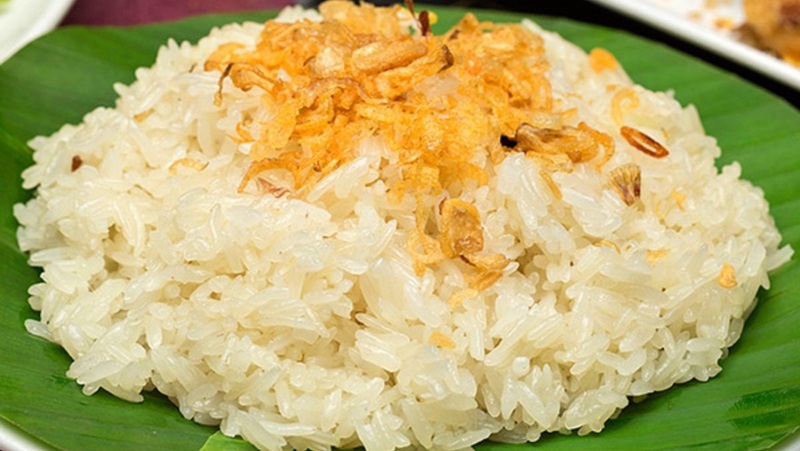 Are There Any Health Benefits to Eating Sticky Rice?
Are There Any Health Benefits to Eating Sticky Rice?
Sticky rice is a traditional Vietnamese dish made mainly from glutinous rice. It is a good source of nutrients, especially carbohydrates, which provide energy to the body throughout the day.
Additionally, sticky rice also contains vitamins and minerals that are essential for the body. Proteins help maintain the body’s healthy growth, while fiber aids in digestion.
In summary, sticky rice is a nutritious dish that provides the body with energy and supports overall health.
2 Can Eating Sticky Rice Cause Acne?
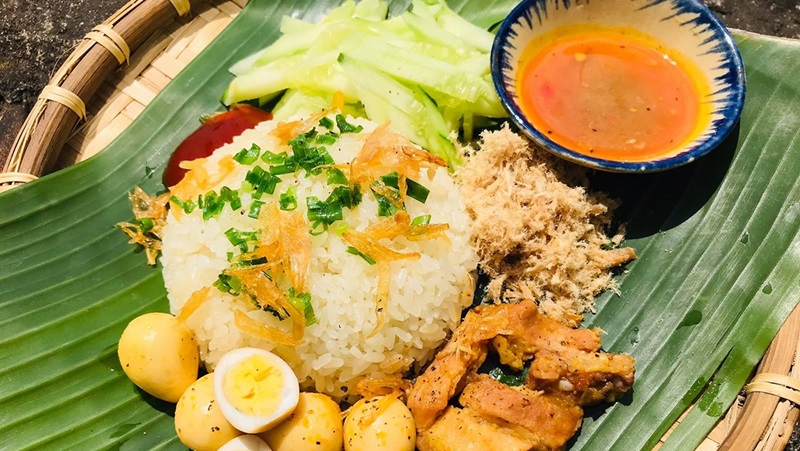 Can Eating Sticky Rice Cause Acne?
Can Eating Sticky Rice Cause Acne?
The answer is yes. Sticky rice is made from glutinous rice, which has a hot nature and can increase the body’s temperature. Consuming too much sticky rice can lead to internal heat buildup, stimulating the sebaceous glands and potentially causing acne.
Especially for those with oily and acne-prone skin, eating excessive amounts of sticky rice can aggravate the skin and worsen acne breakouts. Not just sticky rice, but other dishes made from glutinous rice such as fried glutinous rice cakes, pineapple glutinous rice dumplings, or glutinous rice buns can also lead to acne if consumed in large quantities.
3 Should I Avoid Eating Sticky Rice If I Have Acne?
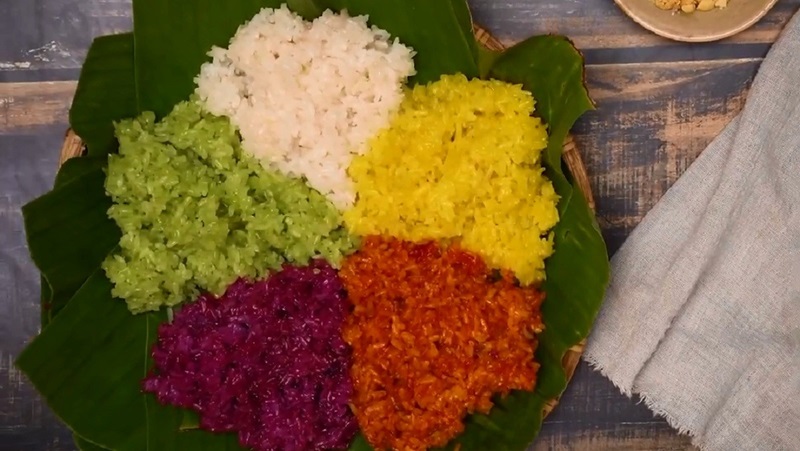 Should I Avoid Eating Sticky Rice If I Have Acne?
Should I Avoid Eating Sticky Rice If I Have Acne?
Since sticky rice can cause and aggravate acne, it is best to avoid it if you are already experiencing breakouts. Consuming too much sticky rice or other glutinous rice dishes will further increase body heat, causing damage to your skin and making your acne worse.
4 What to Do If You Break Out After Eating Sticky Rice or Glutinous Rice Dishes
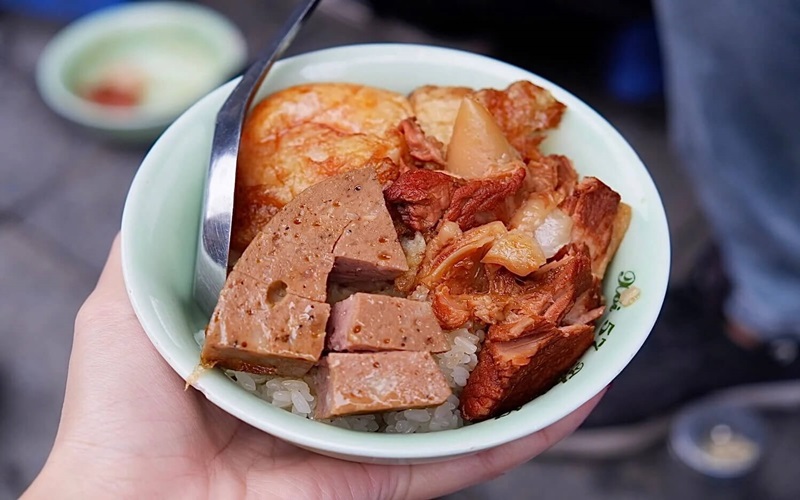 What to Do If You Break Out After Eating Sticky Rice or Glutinous Rice Dishes
What to Do If You Break Out After Eating Sticky Rice or Glutinous Rice Dishes
If you’ve already eaten too much sticky rice or glutinous rice dishes and are experiencing acne, here are some tips to improve your skin condition:
-
Drink cinnamon tea: Cinnamon is a great cooling agent. Drinking cinnamon tea helps reduce internal heat, relieve acid reflux, and improve digestive health.
-
Turmeric and honey: Combining turmeric with honey offers multiple benefits, especially for digestion and skin health.
-
Drink licorice tea: Licorice has anti-inflammatory and antibacterial properties. Drinking licorice tea helps reduce internal heat and supports a healthy digestive system.
-
Stay hydrated: Drinking enough water is crucial to maintain skin and body hydration. It also aids in detoxifying the body.
5 How to Eat Sticky Rice Without Breaking Out
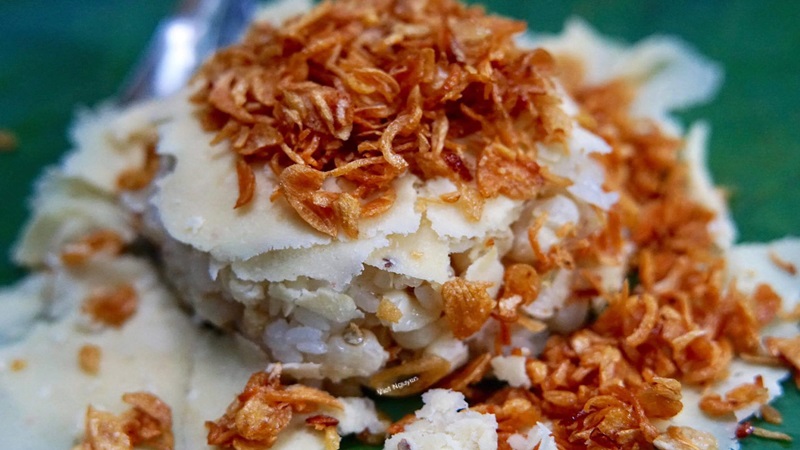 How to Eat Sticky Rice Without Breaking Out
How to Eat Sticky Rice Without Breaking Out
To maintain skin and body health, it is recommended to eat sticky rice in moderation and pair it with other foods to ensure a balanced diet. Limit your consumption of sticky rice to twice a week to optimally absorb its nutrients. Additionally, consider eating sticky rice with lean protein sources or green vegetables to ensure a complete meal.
6 Foods to Avoid If You’re Prone to Acne
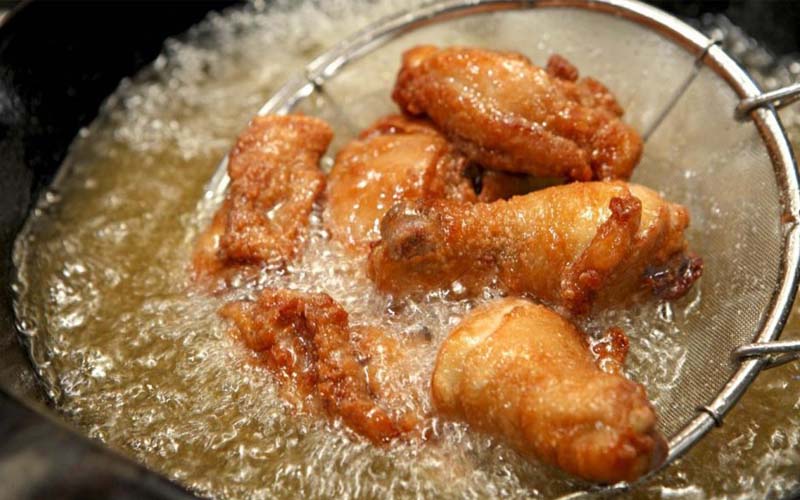 Foods to Avoid If You’re Prone to Acne
Foods to Avoid If You’re Prone to Acne
Here is a list of foods that are likely to cause acne, especially for those with acne-prone or sensitive skin:
-
Foods with a high glycemic index: Foods like white rice, white bread, and potatoes have a high glycemic index. Consuming these foods frequently can cause a sudden spike in blood sugar and stimulate sebaceous gland activity, leading to acne.
-
Dairy products: Milk and dairy products like butter, cream, and cheese are a common cause of acne. They contain hormones that can stimulate sebaceous gland activity, leading to clogged pores and acne formation.
-
Greasy and fried foods: Excessive consumption of greasy and fried foods can increase body heat and trigger acne breakouts.
-
Gluten-containing foods: Instant noodles, bread, and other gluten-rich products can irritate the skin and cause acne breakouts in some individuals.
-
Sugary foods: Consuming sugary products like candy and baked goods can lead to skin inflammation, swelling, and acne formation.
7 Who Should Avoid Eating Sticky Rice Regularly?
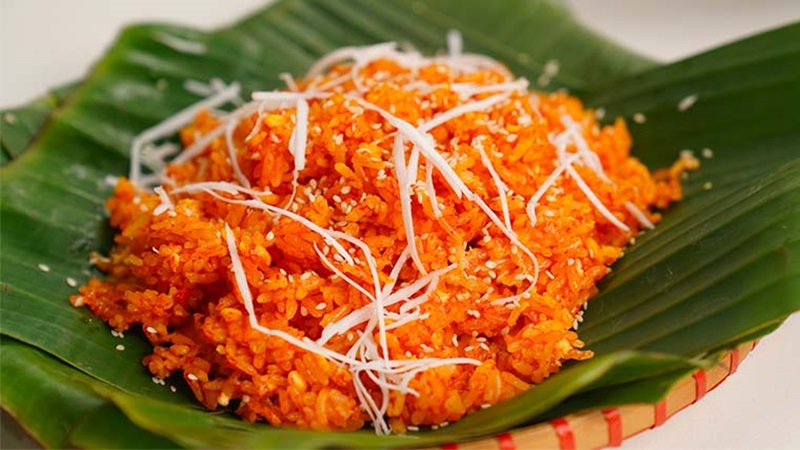 Who Should Avoid Eating Sticky Rice Regularly?
Who Should Avoid Eating Sticky Rice Regularly?
-
Acne-prone individuals: Sticky rice has a hot nature, and those prone to acne, especially cystic acne, should avoid consuming it in large quantities. Excessive intake can increase body heat and worsen acne.
-
Obese individuals: Sticky rice is high in starch due to its glutinous rice content. Eating too much sticky rice can contribute to weight gain.
-
Women who have recently given birth via cesarean section: Sticky rice and other glutinous rice dishes should be avoided by women who have had a C-section. The hot and sticky nature of glutinous rice can cause swelling and pus formation in the surgical wound.
In conclusion, this article has provided insights into the relationship between sticky rice consumption and acne. We hope that you now know whether eating sticky rice can cause acne and have learned effective ways to incorporate sticky rice into your diet while maintaining healthy skin!
7 Remedies from Cana Fruit – Find Out What Cana Is and Its Uses
Dive into the valuable health benefits and unexpected uses of Ca na with Dien May XANH! This small, sour fruit from the West has become a favorite among many people despite its minimal economic value. Discover the hidden gems of Ca na today!




































